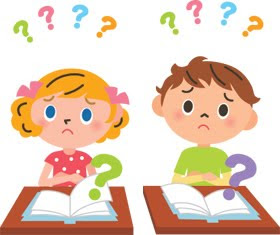“ADHD is usually apparent from the first day of school, whereas dyslexia is often not recognized until fourth or fifth grade, when the shift is made from learning to read to reading to learn.” How to tell the difference, and get help.
Table of Contents
ToggleIt was almost inevitable that my child would be diagnosed with ADHD. Having it myself, and having a family tree full of ADHDers, I knew my son was another leaf on the tree.
However, it was clear in kindergarten that he was also struggling with something else. His teacher told us that he could not read the word “the” even after repeated exposures to the word. She felt he was paying attention, but could not read words at his age level and intellectual capacity. After a full neuropsychological assessment, before beginning first grade, it was discovered that he was also severely dyslexic.
About 50 to 60 percent of ADHDers also have a learning disability. The most common of these is dyslexia, a language-based learning disability that affects reading. Eight to 17 percent of the population is affected by dyslexia, and it is vastly misunderstood.
Defining Dyslexia
Contrary to popular belief, dyslexia is not reading letters or words backward. It manifests itself in different ways in different people. Dyslexics may have difficulty with phonemic awareness, which is the recognition and breaking down, of the sounds of letters. A difficulty in segmenting words is also common to the disorder. A patient of mine named Ryan told me that he used to read the word “doctor” as “do-ctor,” instead of “doc-tor.” Rhyming and fast, effortless recognition of sight words (such as “the”) are also problems. All of these difficulties affect the rate, accuracy, fluency, and comprehension of material that is read.
Retrieving even simple words can be challenging. My patient, Jane, was telling me a story, and became frustrated when she spoke of “the thing we eat meat with” because she couldn’t think of “fork.” Incorrectly substituting words is common. For example, one boy with dyslexia said, “Hawaii has lots of tornadoes,” instead of volcanoes.
Differences and Similarities
ADHD symptoms are exacerbated by Dyslexia, and vice versa. Both ADHD and dyslexia have several symptoms in common, such as information-processing speed challenges, working memory deficits, naming speed, and motor skills deficits. So it is easy for a parent or a professional to mistake dyslexic symptoms for ADHD.
“We didn’t even suspect my daughter may have dyslexia,” said one patient’s mother. “We assumed that reading was tough because of the inattentive symptoms of ADHD. Now we realize that it was dyslexia that was exacerbated by the ADHD.”
ADHD symptoms are usually apparent from the first day of school, whereas dyslexia is often not fully recognized until fourth or fifth grade when the shift is made from learning to read to reading to learn. Parents who express concern early on are often told by teachers that “every student reads differently and they will catch up.”
Differences and similarities between the ADHD and Dyslexia include:
- Children with dyslexia who haven’t been diagnosed with ADHD will exhibit concentration and attention problems, primarily with reading demands but generally not in other situations. ADHDers’ attention is low in any unstimulating environment or task.
- Generally, those diagnosed with dyslexia are better at auditory processing than those with ADHD.
- Those with ADHD(attention deficit hyperactivity disorder) and/or dyslexia are at high risk for self-esteem issues. Many patients can become clinically depressed and have multiple other problems like fear of school and being in social situations due to severe dyslexia and ADHD.
 Zahavit Paz is a co-founder of LD Resources Foundation. She’s a graduate of CUNY Graduate disabilities study program. She is often a presenter on Assistive Technology at professional conferences in schools and colleges and has written extensively on her personal struggle with Dyslexia and ADHD. She is an advocate for individuals with LD and provides resources and information through the LDRFA website. More info about Zahavit Paz.
Zahavit Paz is a co-founder of LD Resources Foundation. She’s a graduate of CUNY Graduate disabilities study program. She is often a presenter on Assistive Technology at professional conferences in schools and colleges and has written extensively on her personal struggle with Dyslexia and ADHD. She is an advocate for individuals with LD and provides resources and information through the LDRFA website. More info about Zahavit Paz.


